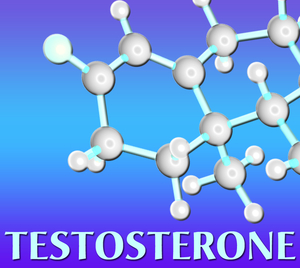Introduction to Genetic Influences on Erectile Function
Erectile dysfunction (ED) is a prevalent concern among American males, affecting millions and often leading to significant distress and a diminished quality of life. While lifestyle factors such as diet, exercise, and psychological health are commonly discussed, the role of genetics in erectile function is an area of growing interest and research. This article delves into the genetic predispositions that may influence a man's ability to achieve and maintain an erection, offering a deeper understanding of this complex issue.
The Genetic Basis of Erectile Function
Recent studies have begun to uncover the genetic underpinnings of erectile function. Researchers have identified several genes that play crucial roles in the physiological processes necessary for an erection. For instance, the nitric oxide synthase gene (NOS) is pivotal in producing nitric oxide, a molecule essential for vasodilation and blood flow to the penis. Variations in this gene can lead to reduced nitric oxide production, potentially resulting in softer erections.
Additionally, genes involved in the regulation of hormones such as testosterone and estrogen also influence erectile function. Polymorphisms in the androgen receptor gene, which affects testosterone signaling, have been linked to an increased risk of ED. Similarly, variations in genes responsible for the metabolism of estrogen can impact vascular health, further complicating erectile function.
Genetic Predispositions and Their Implications
Understanding that genetics can predispose some men to ED opens new avenues for personalized medicine. Men with a family history of ED may benefit from early screening and preventive measures. Genetic testing could identify those at higher risk, allowing for tailored interventions that might mitigate the impact of genetic factors.
However, it is crucial to recognize that genetics is just one piece of the puzzle. Environmental and lifestyle factors interact with genetic predispositions, and their combined effect can either exacerbate or alleviate the risk of ED. For example, a man with a genetic predisposition to ED who maintains a healthy lifestyle may experience fewer issues than one who does not.
The Role of Epigenetics in Erectile Function
Beyond the static nature of genetics, epigenetics—the study of changes in gene expression that do not involve alterations to the underlying DNA sequence—also plays a significant role in erectile function. Environmental factors, such as diet and stress, can lead to epigenetic modifications that affect gene expression related to erectile function. For instance, chronic stress can lead to epigenetic changes that impair the function of genes involved in nitric oxide production, thereby contributing to ED.
Future Directions in Genetic Research on ED
The field of genetic research on erectile function is still in its infancy, but it holds promise for the future. As our understanding of the genetic and epigenetic factors influencing ED grows, so too will our ability to develop targeted therapies. Gene therapy, for example, could one day offer a way to correct genetic defects that contribute to ED, providing a more permanent solution than current treatments.
Conclusion: Embracing a Holistic Approach to ED
While genetics can predispose some men to softer erections, it is essential to approach ED with a holistic perspective. Genetic predispositions should be considered alongside lifestyle factors, psychological health, and environmental influences. By understanding the multifaceted nature of ED, American males can take proactive steps towards maintaining their sexual health, whether through genetic screening, lifestyle modifications, or seeking appropriate medical interventions.
In conclusion, the genetics of erectile function represent a frontier in medical science that offers hope for more effective treatments and a better quality of life for those affected by ED. As research progresses, it is crucial for men to stay informed and engaged with their healthcare providers to navigate this complex landscape effectively.
Contact Us Today For A Free Consultation

- Demystifying the Enigma of Soft Erections: A Comprehensive Guide [Last Updated On: February 25th, 2025] [Originally Added On: February 25th, 2025]
- Exploring the Mind-Body Connection: Harnessing Meditation and Mindfulness for Enhanced Erections [Last Updated On: February 25th, 2025] [Originally Added On: February 25th, 2025]
- Understanding Male Potency: Deciphering the Science behind Erectile Dysfunction [Last Updated On: February 26th, 2025] [Originally Added On: February 26th, 2025]
- Masculinity Reenvisioned: Soft Erections as an Emblem of Strength [Last Updated On: February 27th, 2025] [Originally Added On: February 27th, 2025]
- Revitalizing Virility: Lifestyle Rewiring for Enhanced Erectile Potential [Last Updated On: February 28th, 2025] [Originally Added On: February 28th, 2025]
- Whispering Battles: An Introspection into the Private Struggles with Erectile Dysfunction [Last Updated On: February 28th, 2025] [Originally Added On: February 28th, 2025]
- Unraveling the Stress Matrix: Decoding the Impact of Psychological Stress on Erectile Function [Last Updated On: March 1st, 2025] [Originally Added On: March 1st, 2025]
- Unveiling the Hidden Struggles: A Comprehensive Overview of Erectile Dysfunction [Last Updated On: March 2nd, 2025] [Originally Added On: March 2nd, 2025]
- Soft Erections in Aging Men: Causes, Diagnosis, and Treatment Options [Last Updated On: March 3rd, 2025] [Originally Added On: March 3rd, 2025]
- Enhancing Erectile Function Through Exercise: Understanding Its Physiological and Psychological Benefits [Last Updated On: March 3rd, 2025] [Originally Added On: March 3rd, 2025]
- Exploring Diet's Impact on Erectile Function and Health [Last Updated On: March 4th, 2025] [Originally Added On: March 4th, 2025]
- Exploring the Crucial Role of Sleep in Enhancing Male Erectile Function and Health [Last Updated On: March 5th, 2025] [Originally Added On: March 5th, 2025]
- Understanding and Managing Erectile Dysfunction: Causes, Treatments, and Lifestyle Changes [Last Updated On: March 6th, 2025] [Originally Added On: March 6th, 2025]
- Optimizing Hormonal Balance for Erectile Health: A Comprehensive Guide for Men's Well-being [Last Updated On: March 7th, 2025] [Originally Added On: March 7th, 2025]
- The Crucial Link Between Vascular Health and Erectile Function: A Comprehensive Exploration [Last Updated On: March 8th, 2025] [Originally Added On: March 8th, 2025]
- The Holistic Connection: Erectile Dysfunction as a Reflection of Overall Men's Health [Last Updated On: March 9th, 2025] [Originally Added On: March 9th, 2025]
- From Flab to Firm: How Weight Loss Can Enhance Male Sexual Health and Combat Soft Erections [Last Updated On: March 9th, 2025] [Originally Added On: March 9th, 2025]
- Debunking Myths: Understanding Soft Erections and Effective ED Treatments for American Men [Last Updated On: March 12th, 2025] [Originally Added On: March 12th, 2025]
- Understanding the Impact of Medications on Male Sexual Health: Navigating Drug-Induced Soft Erections [Last Updated On: March 13th, 2025] [Originally Added On: March 13th, 2025]
- Stress and Soft Erections: Understanding Impacts and Effective Management Strategies [Last Updated On: March 15th, 2025] [Originally Added On: March 15th, 2025]
- Vitamins and Minerals: Enhancing Male Sexual Health and Erection Quality [Last Updated On: March 16th, 2025] [Originally Added On: March 16th, 2025]
- Counseling's Role in Overcoming Soft Erections: A Holistic Approach [Last Updated On: March 18th, 2025] [Originally Added On: March 18th, 2025]
- Smoking's Impact on American Males' Erectile Health and Benefits of Quitting [Last Updated On: March 18th, 2025] [Originally Added On: March 18th, 2025]
- Herbal Remedies for Enhancing Erectile Function in American Males [Last Updated On: March 19th, 2025] [Originally Added On: March 19th, 2025]
- Understanding and Managing Soft Erections: Causes, Treatments, and Prevention Strategies [Last Updated On: March 19th, 2025] [Originally Added On: March 19th, 2025]
- Soft Erections in Young Men: Causes, Solutions, and Importance of Professional Help [Last Updated On: March 19th, 2025] [Originally Added On: March 19th, 2025]
- Addressing Soft Erections: Communication and Collaborative Strategies for Couples [Last Updated On: March 20th, 2025] [Originally Added On: March 20th, 2025]
- Alcohol's Impact on Erection Quality: Strategies for Optimal Sexual Health [Last Updated On: March 20th, 2025] [Originally Added On: March 20th, 2025]
- Work Stress and Erectile Dysfunction: Impacts and Management Strategies for American Men [Last Updated On: March 20th, 2025] [Originally Added On: March 20th, 2025]
- Diagnosing Soft Erections: Comprehensive Approaches for American Males' Urological Health [Last Updated On: March 21st, 2025] [Originally Added On: March 21st, 2025]
- Pelvic Floor Exercises: Enhancing Erection Quality and Overall Health in American Males [Last Updated On: March 21st, 2025] [Originally Added On: March 21st, 2025]
- Enhancing Male Sexual Health: Diet, Exercise, and Lifestyle Strategies for Strong Erections [Last Updated On: March 22nd, 2025] [Originally Added On: March 22nd, 2025]
- Economic Impacts of Erectile Dysfunction on American Men: Costs, Productivity, and Relationships [Last Updated On: March 23rd, 2025] [Originally Added On: March 23rd, 2025]
- Understanding Soft Erections: Causes, Impacts, and Strategies for Sexual Confidence [Last Updated On: March 23rd, 2025] [Originally Added On: March 23rd, 2025]
- Chronic Inflammation's Impact on Sexual Health: Mechanisms and Management Strategies [Last Updated On: March 23rd, 2025] [Originally Added On: March 23rd, 2025]
- Overcoming Soft Erections: From Frustration to Fulfillment with Medical and Lifestyle Solutions [Last Updated On: March 23rd, 2025] [Originally Added On: March 23rd, 2025]
- Innovative Devices and Holistic Approaches for Managing Soft Erections and ED [Last Updated On: March 23rd, 2025] [Originally Added On: March 23rd, 2025]
- Soft Erections: Understanding, Impact, and Building Intimacy in Relationships [Last Updated On: March 24th, 2025] [Originally Added On: March 24th, 2025]
- Cardiovascular Health's Impact on Erectile Function and Soft Erections in Men [Last Updated On: March 24th, 2025] [Originally Added On: March 24th, 2025]
- Alternative Medicine and Acupuncture for Enhancing Erectile Health in American Males [Last Updated On: March 24th, 2025] [Originally Added On: March 24th, 2025]
- Managing Soft Erections: Lifestyle and Psychological Strategies for American Men [Last Updated On: March 24th, 2025] [Originally Added On: March 24th, 2025]
- Managing Soft Erections: Understanding Causes, Preparing for Doctor Visits, and Exploring Treatments [Last Updated On: March 24th, 2025] [Originally Added On: March 24th, 2025]
- Mindfulness Techniques for Managing Soft Erections in American Men [Last Updated On: March 24th, 2025] [Originally Added On: March 24th, 2025]
- Soft Erections and Self-Esteem: Psychological Strategies for American Men [Last Updated On: March 24th, 2025] [Originally Added On: March 24th, 2025]
- Superfoods Boost Vascular Health, Enhance Erection Quality: Dark Chocolate, Walnuts, More [Last Updated On: March 24th, 2025] [Originally Added On: March 24th, 2025]
- Prostate Health and Soft Erections: Understanding and Managing the Connection [Last Updated On: March 24th, 2025] [Originally Added On: March 24th, 2025]
- Digital Health Tools for Managing Soft Erections in American Men [Last Updated On: March 24th, 2025] [Originally Added On: March 24th, 2025]
- Exploring Alternative Therapies for Erectile Dysfunction in American Men [Last Updated On: March 25th, 2025] [Originally Added On: March 25th, 2025]
- Physical Therapy: A Promising Solution for Soft Erections and Erectile Dysfunction [Last Updated On: March 25th, 2025] [Originally Added On: March 25th, 2025]
- Environmental Toxins and Their Impact on Male Sexual Health: Understanding Soft Erections [Last Updated On: March 25th, 2025] [Originally Added On: March 25th, 2025]
- Obesity and Soft Erections: Enhancing Sexual Health Through Weight Management [Last Updated On: March 25th, 2025] [Originally Added On: March 25th, 2025]
- Understanding Soft Erections: Causes, Impacts, and Management Strategies for American Males [Last Updated On: March 25th, 2025] [Originally Added On: March 25th, 2025]
- PDE5 Inhibitors: A Targeted Solution for Soft Erections and ED Management [Last Updated On: March 25th, 2025] [Originally Added On: March 25th, 2025]
- Innovative Technologies Transforming Erectile Dysfunction Treatment in American Males [Last Updated On: March 25th, 2025] [Originally Added On: March 25th, 2025]
- Hormonal Balance: Key to Enhancing Erectile Strength in American Men [Last Updated On: March 25th, 2025] [Originally Added On: March 25th, 2025]
- Soft Erections in American Males: Impact of Anxiety, Depression, and Holistic Treatment Approaches [Last Updated On: March 25th, 2025] [Originally Added On: March 25th, 2025]
- Nitric Oxide's Role in Enhancing Erections: Mechanisms and Strategies [Last Updated On: March 25th, 2025] [Originally Added On: March 25th, 2025]
- Understanding Soft Erections: Causes, Mechanisms, and Treatment Options for American Males [Last Updated On: March 26th, 2025] [Originally Added On: March 26th, 2025]
- Understanding Soft Erections: Causes, Treatments, and Breaking Stereotypes in American Men [Last Updated On: March 26th, 2025] [Originally Added On: March 26th, 2025]
- Soft Erections and Metabolic Syndrome: Causes, Implications, and Management for American Males [Last Updated On: March 26th, 2025] [Originally Added On: March 26th, 2025]
- Sedentary Lifestyles and Erection Health: The Importance of Physical Activity [Last Updated On: March 26th, 2025] [Originally Added On: March 26th, 2025]
- Soft Erections vs. Erectile Dysfunction: Causes, Impacts, and Treatments for American Men [Last Updated On: March 26th, 2025] [Originally Added On: March 26th, 2025]
- Medications Causing Soft Erections: Causes, Identification, and Management Strategies [Last Updated On: March 26th, 2025] [Originally Added On: March 26th, 2025]
- Biofeedback: A Non-Invasive Solution for Enhancing Erectile Control in American Males [Last Updated On: March 27th, 2025] [Originally Added On: March 27th, 2025]
- Enhancing Sexual Stamina: Techniques for Managing Soft Erections in American Men [Last Updated On: March 27th, 2025] [Originally Added On: March 27th, 2025]
- Sleep Disorders and Soft Erections: Impact on American Males' Sexual Health [Last Updated On: March 28th, 2025] [Originally Added On: March 28th, 2025]
- Cardiovascular Exercise Boosts Erection Quality in American Men [Last Updated On: March 29th, 2025] [Originally Added On: March 29th, 2025]
- Stress Management Techniques to Improve Erectile Function in American Men [Last Updated On: March 30th, 2025] [Originally Added On: March 30th, 2025]
- Redefining Masculinity: Embracing Soft Erections and Enhancing Sexual Confidence [Last Updated On: March 30th, 2025] [Originally Added On: March 30th, 2025]
- Understanding and Treating Soft Erections: Causes, Therapies, and Surgical Options [Last Updated On: March 31st, 2025] [Originally Added On: March 31st, 2025]
Word Count: 610





















